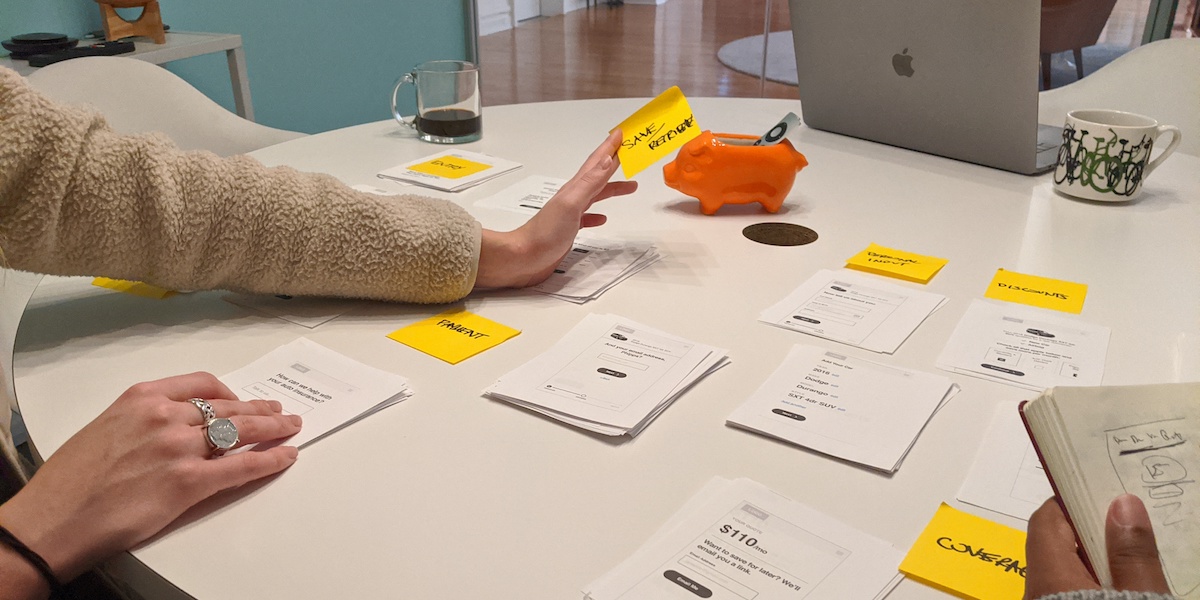
The last time we published a blog sharing a recap of customer research insights it was at the end of 2020. Indisputably, it was a year like no other. While things haven’t exactly gone back to normal, they have settled into some kind of a rhythm. It’s a rhythm that has managed to normalize the constant sense of uncertainty that Covid made familiar to us. A rhythm for sure, but a frantic one, perhaps nowhere more obvious than in the world of work (a subject we’ve tackled head-on in research).
When the pandemic first hit, everyone was getting laid off. A few months later, everyone was quitting, making retention and hiring difficult. Then workers began agitating against return-to-office policies. This was followed by the whole quiet quitting thing, massive tech layoffs, and finally “the great stay.” As of today, hybrid work is now very much a thing and looks to be here to stay, knowledge workers are burnt out, many offices still stand empty. The job market is apparently looking healthier than expected. But then again, what about AI? Its true impacts on the job market, and specifically on the knowledge industry, have yet to be realized. Still, the technology is and will likely remain controversial. This controversy brought the entertainment industry to a standstill for much of the past year. Meanwhile, new rounds of AI-related layoffs are raising eyebrows.
And now there’s an election year coming. Oh my!
Throughout this year of highs and lows and all things unprecedented, we did what we always do: we talked to customers (mostly about insurance). Using qualitative research, we tried to better understand their needs, their challenges, their values, behaviors, and priorities so that we could help the insurance industry to better serve them. This ongoing effort to uncover meaningful customer research insights bears a particular weight now, as the pace of change seems to have quickened in recent years, making it harder than ever for industries like insurance to keep up with their customers.
In a final farewell to 2023, we asked our team to share some of the most interesting quotes and customer research insights from the year. Here’s what we came up with:
1. The experiences that lead to claims always leave a psychic mark
“It was always in the back of my mind—the worry that someone, somewhere was going to get hurt on the job I never, ever wanted that. My co-workers are my people., It’s a hard job—not in the sense that you’re overworked or overextended—but it’s a hard mental load to carry every day. It’s a lot to feel.”
Risk Manager from disability research
In the past months, user research has really hit home the impact that insurance, and the risks it covers, have on people, at a basic, emotional level. Whether it’s talking to homeowners about their catastrophic losses due to climate change or hearing from workers’ compensation and disability policyholders about the stresses of their job—keeping their workforce safe and on the job, the experiences that lead to claims always leave a psychic mark.
For the insurance industry, this drives home the importance of cultivating human, compassionate interactions with customers, especially when dealing with claims. In much of the research we did this year, we found that the experience of resolving a claim is more often than not painful and frustrating, only deepening the psychic mark of the experience that led a customer to that point. The insurance industry can and should do better.
2. High-profile security breaches are leading to increasing conflict between convenience and security
“I strongly prefer to collect payment info and bind the policy, so the customer is covered and they’re obligated to pay.”
Agent from P&C agent portal research
“I would never collect payment information, that’s a nightmare scenario. I don’t think my agency should be responsible for securing my customer’s payment info.”
Agent from P&C agent portal research
We recently worked with a client to redesign how P&C agents potentially collect payment information from customers for new policies. During this research, we heard agents falling into for or against camps. One of the ‘for’ people strongly preferred to collect payment info from their customers upfront to ensure the customer was covered and that their premium was always paid. More convenient for the agent, more convenient for the customer. Another agent said they would never collect payment information citing concerns that their agency can’t be reasonably expected to secure the customers’ payment information, wanting to safeguard both the customer relationship and the agency.
These two sides speak to changing attitudes toward information security. As we’ve seen more and more high-profile security breaches in recent years, many are becoming more cautious around who they share payment information with. And there’s a knock-on effect to the traditional role of agents-as-concierge. While agents do less and less hand-holding and the Internet subsumes their tasks, is the convenience and the ease of doing business worth the risks–for both the customer and the agency? How will issues around information security continue to butt up against customer experience? It’s an issue insurance companies will be grappling with even more in the years to come.
3. Homeowners are having the sudden realization that they are overexposed and underprepared
“I knew how to prep my home and our property for a hurricane—but a tornado? We don’t get tornadoes here, or so I thought.”
Virginia homeowner from homeowner climate research
Climate change is fast reshaping the housing market and putting financial pressure on homeowners with existing policies. In recent research with homeowners, we heard many describe feeling completely unprepared for changing weather patterns. Occurrences like tornadoes where there used to only be hurricanes, and flooding in areas not designated as flood zones are throwing homeowners for a loop. More insight, education, and available data will help homeowners better understand the risks their properties face under changing weather patterns. Not only that, these same homeowners are looking for more education about what they can do to mitigate risks. Investing in education and making risk data more accessible for homeowners is a win-win for insurance carriers and their policyholders.
4. Despite their best efforts, businesses still struggle to make employees feel heard
“Surveys can be misinterpreted. [They’re] different than a conversation."
Employee from employee experience research
Hiring and retaining top-quality talent has been a struggle for many industries in recent years, especially for insurance. Many companies have been investing in initiatives to retain employees and are looking for ways to improve employee experience, sometimes by soliciting employee feedback. Employers often feel like they need to survey employees to show the company is listening, taking action, and fixing/improving things.
Recent research around improving employee experience found that while surveys may be useful for collecting data, they do not necessarily help cultivate better employee experiences. They can be viewed as one-sided—data that is taken in, aggregated, generalized, and then used how and for what? Employees see surveys as a black box. Instead, we found that employees would prefer employers and management to have a conversation with them. Talk to them about why they want the feedback, what they hope to achieve, and what it means for them and the company. This kind of communication is not only seen as taking action but helps build a connection between employer and employee, which can improve the employee experience.
5. Skyrocketing insurance rates are forcing customers to make tough choices
“Right now, we don’t really have health insurance. We do medical cost-sharing, but only have catastrophic coverage. The cost of buying insurance through the market was just outrageously expensive for a family our size.”
Attorney and single mother of four from personal finance research
As homeowners insurance and even car insurance go the way of health insurance, with premiums skyrocketing in 2024 to rates out of reach for many, individuals will be forced to explore alternatives. More and more will find themselves with no choice but to reduce coverage, selling homes, “going bare” as many without mortgages are already starting to do, and/or making tough choices around their finances and lifestyles to be able to continue to afford their homes. Doing more to educate potential customers about risk before buying homes and helping current policyholders find ways to mitigate risk so that they can avoid potential claims and get discounts on premiums will help ease some of the burden of current rate increases.
___
Wondering if it might be time to uncover customer research insights from your customers to drive your business forward? Download our customer check-in guide here.


